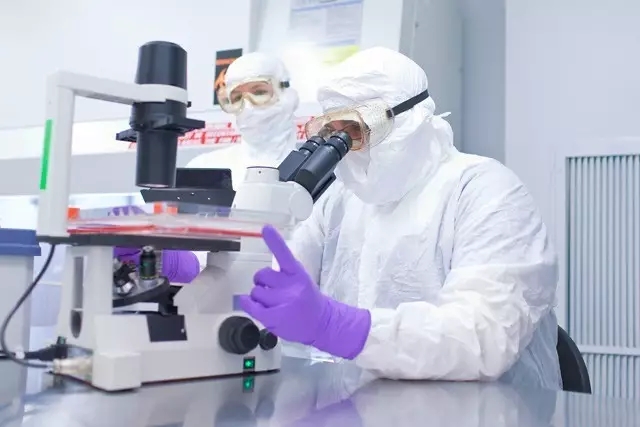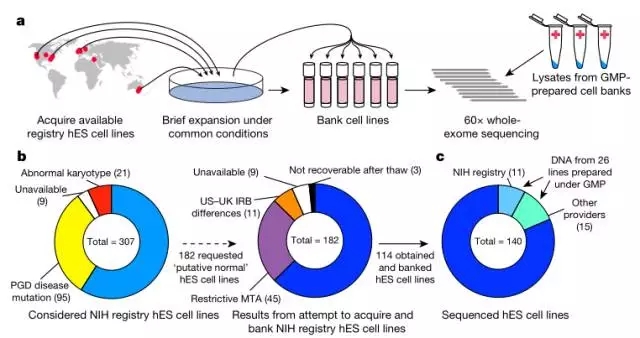Nature publishes a stem cell culture or carries a mutant gene
Recently, a study conducted by the Harvard Stem Cell Research Institute (HSCI), Harvard Medical School (HMS), the Broad Research Institute of Psychiatry, and the research team at Harvard University showed that cancer suppression occurred during human pluripotent stem cell culture. Mutation of the gene TP53, about 5% of stem cells carrying the mutant gene! The results of the study were published online in the journal Nature on April 26, 2017. They also warned that stem cells must be screened for genetic testing before clinical use.
There are too many things to seek "balance" in life. But personal choices are quite different from "life and death" or "quality of life." Faced with the peculiar and unknown effects of stem cells, some people are willing to leave their choices to patients, while others are controlling others' choices. So is the risk of clinical application dialectical?

Stem cell research Source: impulsiveviral. Com
Researchers study stem cells and expect to be able to repair damaged cells, tissues, and even organs. Unfortunately, there are no convincing human trials to verify the safety and efficacy of stem cell technology. As Harvard University stem cell research expert George Daley said, “Question will always exist. This is both scientific research and the pursuit of medical imperfections.†Imagine taking stem cells from the patient's own body, processing it, then injecting or returning it to the The patient tried to cure the patient's rheumatoid arthritis, or spinal injury or brain disease (Parkinson, Alzheimer's disease). There are indeed cases with significant or some effects, but this does not mean that this cell treatment is safe and effective.
A series of irreparable consequences of severe infection, tumor induction, and even activation of the autoimmune system are potentially fatal risks that stem cell clinical applications require.
Recently, according to Nature, if stem cells carrying the p53 mutation are used in disease treatment, it will increase the risk of cancer in patients. The study was conducted by the Harvard Stem Cell Research Institute (HSCI), Harvard Medical School (HMS), the Broad Research Institute of Psychiatry, and the research team at Harvard University. The results showed that the tumor suppressor gene TP53 occurred during human pluripotent stem cell culture. Mutation, about 5% of stem cells carry the mutated gene! The results of the study were published online in the journal Nature on April 26, 2017. They also warned that stem cells must be screened for genetic testing before clinical use.
It is well known that stem cells are cultured in a laboratory, and the culture environment simulates the body, so genetic mutations are also expected. But it is not clear whether these mutations are at risk. We are concerned that mutations obtained in stem cell culture will complicate the use of stem cells in regenerative medicine. At least laboratory-cultured stem cells may need to screen for deleterious mutations, particularly genetic mutations that may have serious consequences, such as cancer.

140 human embryonic stem cell lines (hES) were selected for genomic analysis
Sweeteners refer to Food Additives that can impart sweetness to soft drinks. Sweeteners can be divided into nutritive sweeteners and non-nutritive sweeteners according to their nutritional value; according to their sweetness, they can be divided into low-sweetness sweeteners and high-sweetness sweeteners; according to their source Divided into natural sweeteners and synthetic sweeteners.
Here you can find the related products in Sweeteners, we are professional manufacturer of Sweeteners. We focused on international export product development, production and sales. We have improved quality control processes of Sweeteners to ensure each export qualified product.
Here you can find the related products in Sweeteners, we are professional manufacturer of Sweeteners like D-Mannose, Raffinose, Sucralose, Maltitol, Erythritol, Sorbitol and so on.
D-Mannose, Raffinose, Sucralose, Maltitol, Erythritol, Sorbitol
Xi'an Gawen Biotechnology Co., Ltd , https://www.ahualynbio.com